Unfortunately due to the rapid spread of coronavirus, the majority of our speakers and many of our attendees are now unable to make it to the UK. In light of this we have decided to cancel the physical meeting on Monday and Tuesday, and go for an entirely virtual meeting instead. Please do not come to Oxford in person. We will be sending out more information shortly.
Want to meet other members of the battery modelling community and discuss the latest battery applications and research?
In 2019 over 170 battery modelling researchers from academia and industry came together in a friendly and inclusive environment at the first Oxford Battery Modelling Symposium to discuss the latest findings in our field. We initiated the event to bring together mathematicians, chemists, physicists and engineers, so that we could learn from each other, discuss best practice, and provide excellent networking opportunities. The popularity of the event was reflected in the number of high profile academic and industry representatives who attended, including researchers from many leading universities worldwide as well as industry delegates from companies including Siemens, Continental, Renault, PSA, BMW, Aston Martin, Williams Advanced Engineering, Johnson Matthey, and Comsol.
We are delighted to invite you to join us for the second Battery Modelling Symposium to be held in March 2020, where we will have presentations from world-leading experts in the field and great networking opportunities including a wonderful dinner at Pembroke College Oxford. There will also be the opportunity to present your own research in our popular poster session. Full details below!
Senior researchers, early career researchers and PhD students, in academia, research institutes, and industry, in the UK and internationally
16th-17th March 2020 at Pembroke College, University of Oxford, England, OX1 1DW.
Please contact agata.dybisz@eng.ox.ac.uk for general queries about the conference, or events@eng.ox.ac.uk for registration related queries
David Howey and Charles Monroe (Department of Engineering Science)
Colin Please (Mathematical Institute)
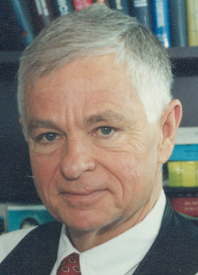
Dr. Ralph E. White is a Distinguished Scientist and a Professor of Chemical Engineering at the University of South Carolina. He received his PhD from the University of California at Berkeley in 1977 under the direction of Professor John Newman. Dr. White has authored or coauthored over 345 peer-reviewed journal articles. Currently, members of his research group are working on projects in the areas of fuel cells, batteries, and numerical methods. Their work on numerical methods consists of developing efficient algorithms to solve the equations that represent the phenomena that occur in electrochemical and chemical systems. Early in his career, Dr. White helped GM develop the software used to simulate the performance of the lead acid batteries used in the GM EV-1 vehicle. Since then, Dr. White helped develop the single particle model for lithium ion cells. This model has been used by battery engineers to simulate the performance of lithium ion batteries for use in satellites and other low rate devices. He is a member of NASA’s NESC Electrical Power Technical Discipline Team working on the design of safe lithium ion battery packs. He has received several awards: Scientific Achievement Award, American Electroplaters and Surface Finishers Society, 1999; Olin Palladium Award, The Electrochemical Society, 2013; Vittorio de Nora Award, The Electrochemical Society, 2016; and the Henry B. Linford Award, The Electrochemical Society, 2018.
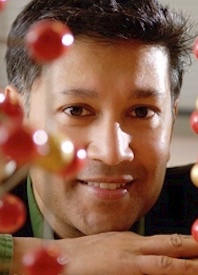
Saiful Islam is Professor of Materials Chemistry at the University of Bath. He grew up in Crouch End London and obtained his Chemistry degree and PhD from University College London (with Richard Catlow FRS), followed by a Postdoctoral Fellowship at the Eastman Kodak Labs in New York, USA. He returned to the UK to the University of Surrey, before joining the University of Bath in 2006. His research interests encompass computational studies of new materials for lithium-ion batteries and perovskite solar cells, with around 220 publications and more than 80 invited conference talks. A recipient of several awards including the 2020 ACS Award in Energy Chemistry, 2017 RSC Peter Day Award for Materials Chemistry and 2013 Royal Society Wolfson Research Merit award. Saiful presented the 2016 Royal Institution Christmas Lectures for BBC TV, entitled ‘Supercharged: Fuelling the Future’. He sits on the Expert Panel of the Faraday Institution and is a Patron of Humanists UK. When not exploring new materials, he enjoys family breaks (as a dad of two), football, indie music and his favourite chemicals gin and tonic.
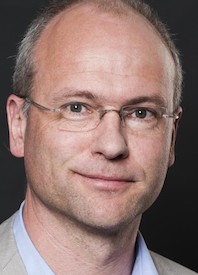
Arnulf Latz is professor for Electrochemical Multiphysics Modeling at the University of Ulm, head of department for Computational Electrochemistry at the Institute for Engineering Thermodynamics (German Aerospace Center in Stuttgart), principal investigator for Electrochemical Multiphysics Modeling at the Helmholtz Institute Ulm for Electrochemical Energy Storage and a member of the board of directors of the Helmholtz Institute Ulm. He received his Ph.D. degree in Theoretical Physics from the Technical University of Munich in 1991 and the venia legendi in 1999 from the Johannes Gutenberg University in Mainz. After 10 years in academic research in the USA and Germany, he entered the field of applied research and from 2002-2012 was head of the group “Complex Fluids” at the Fraunhofer Institute for Industrial Mathematics in Kaiserslautern, before joining the German Aerospace Center and University of Ulm in 2012. His main research interests are modeling and simulation of electrochemical storage and conversion technologies, with a focus on rigorous theory based non-equilibrium thermodynamics approaches and microstructure resolved simulations.
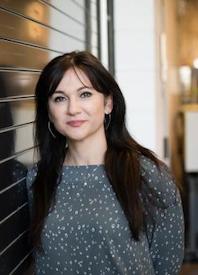
Simona Onori is Assistant Professor in the Department of Energy Resources Engineering at Stanford University (USA) and Adjunct Professor of Automotive Engineering at Clemson University (USA). Her research tackles fundamental modeling, control and estimation questions to both improve efficiency and longevity of existing energy systems and at the same time optimize the development of the new generation energy systems with the ultimate goal to accelerate the transition to clean energy grid and transportation. Simona is Chair of the IEEE Technical Committee on Automotive Controls and Vice-Chair of the IFAC TC on Automotive Control. She teaches Modeling and Estimation of Electrochemical Energy Storage Systems at Stanford.
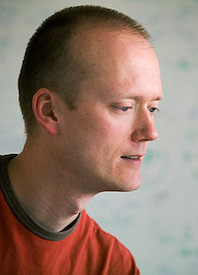
Professor Chapman completed his BA in mathematics in 1989, and his DPhil in Applied Mathematics in 1991, both from Oxford University. He held a postdoctoral positions at Stanford University and St. Catherine’s College, Oxford, before becoming a Royal Society University Research Fellow at the Oxford Centre for Industrial and Applied Mathematics in 1995. In July 1999 he was appointed to the Chair in Mathematics and its Applications at the University of Oxford. He was awarded the SIAM Richard C. DiPrima prize in 1994, the Whitehead Prize of the London Mathematical Society in 1998, the inaugural SIAM Julian Cole Prize in 2002, and the Naylor Prize and Lectureship of the London Mathematical Society in 2015. His research interests centre on mathematical modelling and asymptotic analysis, with applications in industry and the physical and biological sciences, using mainly partial differential equations. Particular problems of current interest include lithium ion batteries, thymocyte regulation, and finite size effects in diffusion.
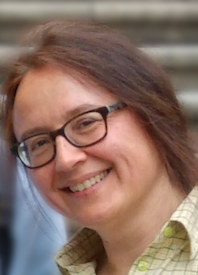
Barbara Wagner leads the Thermodynamic Modeling and Analysis of Phase Transitions research group at the Weierstrass Institute in Berlin. Her work in applied mathematics looks at applications such as lithium-ion batteries and complex liquids and polymers, with a research focus on asymptotic analysis and numerics for nonlinear PDEs, including singular perturbation methods for multi-scale problems, free boundary problems and phase field- and sharp-interface models. Barbara is Associate Editor for the SIAM Journal of Applied Mathematics and the Journal of Engineering Mathematics. She is a member of the scientific board for the European Conference of Mathematics for Industry and the SIAM Conference on Nonlinear Waves and Coherent Structures.
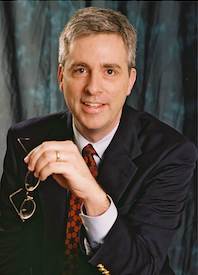
Dr. Fuller is Professor of Chemical Engineering at the Georgia Institute of Technology. Dr. Fuller received a B.S. from the University of Utah in Chemical Engineering in 1982. Dr. Fuller then served for five years in the U.S. Navy working as a Nuclear Engineer. In 1992 he obtained a Ph.D. from UC, Berkeley also in Chemical Engineering. Subsequently, Dr. Fuller developed advanced lithium batteries while working as a postdoctoral fellow at Lawrence Berkeley National Laboratory. He then moved to United Technologies. He was responsible for technology development, design, assembly, and test of cell stacks for UTC Fuel Cells. In 2004, Dr. Fuller joined the faculty at the Georgia Institute of Technology. His research is focused on durability challenges for electrochemical systems. Professor Fuller served as a Technical Editor for the Journal of the Electrochemical Society from 2009 to 2019. In 2009 Dr. Fuller was named a Fellow of the Electrochemical Society. In 2018 he was named a Fellow of AIChE.
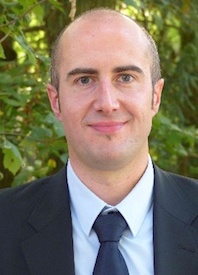
Charles has been a CNRS researcher at Laboratoire de Réactivité et Chimie des Solides (France) since 2007. He completed his PhD in materials chemistry at Université de Picardie Jules Verne (Amiens, France), in 2005 and was then a Postdoctoral fellow for two years in Prof. John Newman’s group at Berkeley. Charles has authored nearly 56 peer-reviewed papers and 3 patents, and been awarded distinctions including the Carl Wagner Medal of Excellence in Electrochemical Engineering (2011) and the Oronzio and Niccolò De Nora Foundation Prize (2009). Current effort is the development of physics-based mathematical models for lithium-ion batteries, with a focus on electrolyte transport and battery degradation, in close collaboration with French automotive industry.
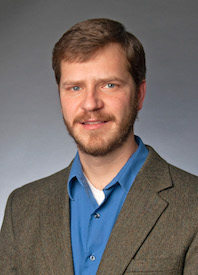
Dr. Kandler Smith leads the Battery Computational Modeling Team in the Transportation Energy Storage Group at the U.S. Department of Energy’s National Renewable Energy Laboratory in Golden, Colorado USA. Research projects include Li-ion battery lifetime prediction & extension, application of machine learning for model identification, fast charging, battery computational design and modeling of electrochemical/thermal/mechanical-coupled phenomena in Li-ion batteries including emerging chemistries. Kandler recently co-authored a textbook on design and analysis of large Li-ion battery systems He holds a Ph.D. in mechanical engineering from the Pennsylvania State University in electrochemical modeling and control of Li-ion batteries.
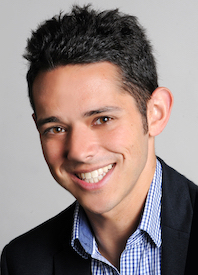
Scott Moura is an Associate Professor in Civil & Environmental Engineering and Director of the Energy, Controls, & Applications Lab (eCAL) at the University of California, Berkeley. He is also a faculty member at the Tsinghua-Berkeley Shenzhen Institute. He received the B.S. degree from the University of California, Berkeley, CA, USA, and the M.S. and Ph.D. degrees from the University of Michigan, Ann Arbor, in 2006, 2008, and 2011, respectively, all in mechanical engineering. From 2011 to 2013, he was a Post-Doctoral Fellow at the Cymer Center for Control Systems and Dynamics, University of California, San Diego. In 2013, he was a Visiting Researcher at the Centre Automatique et Systèmes, MINES ParisTech, Paris, France. His research interests include control, optimization, and machine learning for batteries, electrified vehicles, and distributed energy resources. Dr. Moura is a recipient of the National Science Foundation (NSF) CAREER Award, Carol D. Soc Distinguished Graduate Student Mentor Award, the Hellman Fellowship, the O. Hugo Shuck Best Paper Award, the ACC Best Student Paper Award (as advisor), the ACC and ASME Dynamic Systems and Control Conference Best Student Paper Finalist (as student and advisor), the UC Presidential Postdoctoral Fellowship, the NSF Graduate Research Fellowship, the University of Michigan Distinguished ProQuest Dissertation Honorable Mention, the University of Michigan Rackham Merit Fellowship, and the College of Engineering Distinguished Leadership Award.
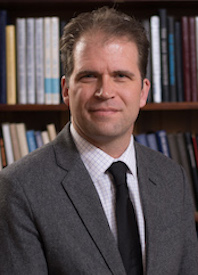
Steven C. DeCaluwe is an Associate Professor of Mechanical Engineering at the Colorado School of Mines in Golden, CO. He received his BS in mathematics and elementary education from Vanderbilt University (2000). After teaching elementary school for three years, he earned a PhD in mechanical engineering from the University of Maryland (2009) before serving as a postdoctoral fellow at the NIST Center for Neutron Research (2009–2012). His research employs operando diagnostics and numerical simulation to bridge atomistic and continuum-scale understanding of electrochemical energy devices, with a focus on processes occurring at material interfaces and in reacting flows. Applications include lithium-ion batteries, beyond lithium-ion batteries (Li-O2 and Li-S), and polymer electrolyte membrane fuel cells.
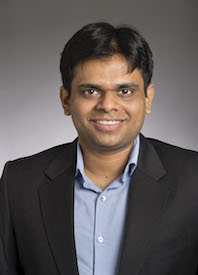
Venkat Viswanathan is an Associate Professor of Mechanical Engineering at Carnegie Mellon University. He received his PhD at Stanford University in 2013 and subsequently spent a year as a postdoctoral researcher at MIT. At Carnegie Mellon, he leads an interdisciplinary group comprising of ~30 researchers working on technologies that can accelerate the transition to sustainable transportation and aviation. He is a recipient of numerous awards including the Office of Naval Resarch (ONR) Young Investigator Award, Alfred P. Sloan Research Fellowship in Chemistry, National Science Foundation CAREER award and MIT Technology Review Innovators Under 35 Finalist. He has broad expertise in materials related to Li-ion batteries, next-generation technologies such as solid-state batteries, Li-air batteries. He is also an expert on the topic of synergies between autonomous vehicles and electric vehicles. He has been technical consultant for several startups.
Registration for the symposium is now open, to include refreshments and lunch on both days, and the symposium dinner held at Pembroke College. Prices are unchanged from last year, with standard registration costing £350.
Register by following this link or pressing the button at the top of this website. Note that the conference fee does NOT include accommodation costs or travel costs, which must be booked independently. Information on suitable local accommodation and travel advice is available below.
If you would like a quote to start the process, please contact us at events@eng.ox.ac.uk.
The Symposium Dinner will take place on the evening of 16th March 2020, and includes a 3 course meal and wine in Pembroke College's old dining hall.
All speakers for the symposium will be invite only. We will also display a number of posters during the conference. If you would like to be considered for a poster space, please send a one page abstract using the Poster Abstract Template for consideration to david.howey@eng.ox.ac.uk no later than 1st Feb 2020. Only submissions from persons registered for the conference will be considered.
The Oxford Battery Modelling Symposium will be held in the heart of Oxford at Pembroke College. Presentations will be held in the state of the art Pichette Auditorium, with dinner being hosted in the historic setting of Pembroke's beautiful dining hall.
Downloadable map and directions to Pembroke College
Pembroke College is situated in Oxford city centre and is a 15 minute walk from the Oxford's train station where regular trains run to London's Marylebone station or Paddington station, both of which are just a few stops by London Underground to St. Pancras station, where Eurostar train connections are available to France, Belgium and beyond. If you are driving to Oxford, parking in the centre is very constrained and we recommend instead parking at one of the local Park and Ride facilities from which regular buses into the centre of town are available. The easiest airport for access to Oxford is London Heathrow and there is a regular bus service that runs between Heathrow and Oxford (terminal 5 is particularly convenient for this).
We have reserved some ensuite rooms at Pembroke College for delegates for the night of Monday 16th March, including breakfast on 17th March, at a very reasonable rate. We have also reserved a number of rooms on the night of Sunday 15th March for those who might wish to arrive the day before the conference starts. All of these rooms must be booked separately to conference registration and will be available on a first come first served basis, so please book as soon as possible. Follow this link to book accommodation at the college, using booking code BC2020.